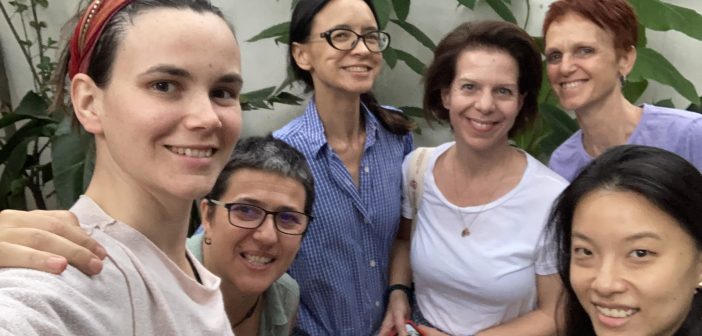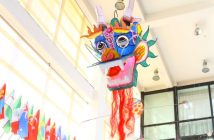Carefully navigating my electric scooter down the narrow hutong streets, I noticed I was already a few minutes late. As my GPS informed me that I was nearing my destination, an older lady leaning against a brick wall gestured towards the door on her left, “It’s here,” she said to me in Mandarin. I looked at the number on the door, 44, indeed it was the address I was looking for. I parked my scooter to the side of the alleyway, pushed open the wooden doors, and stepped over the threshold.
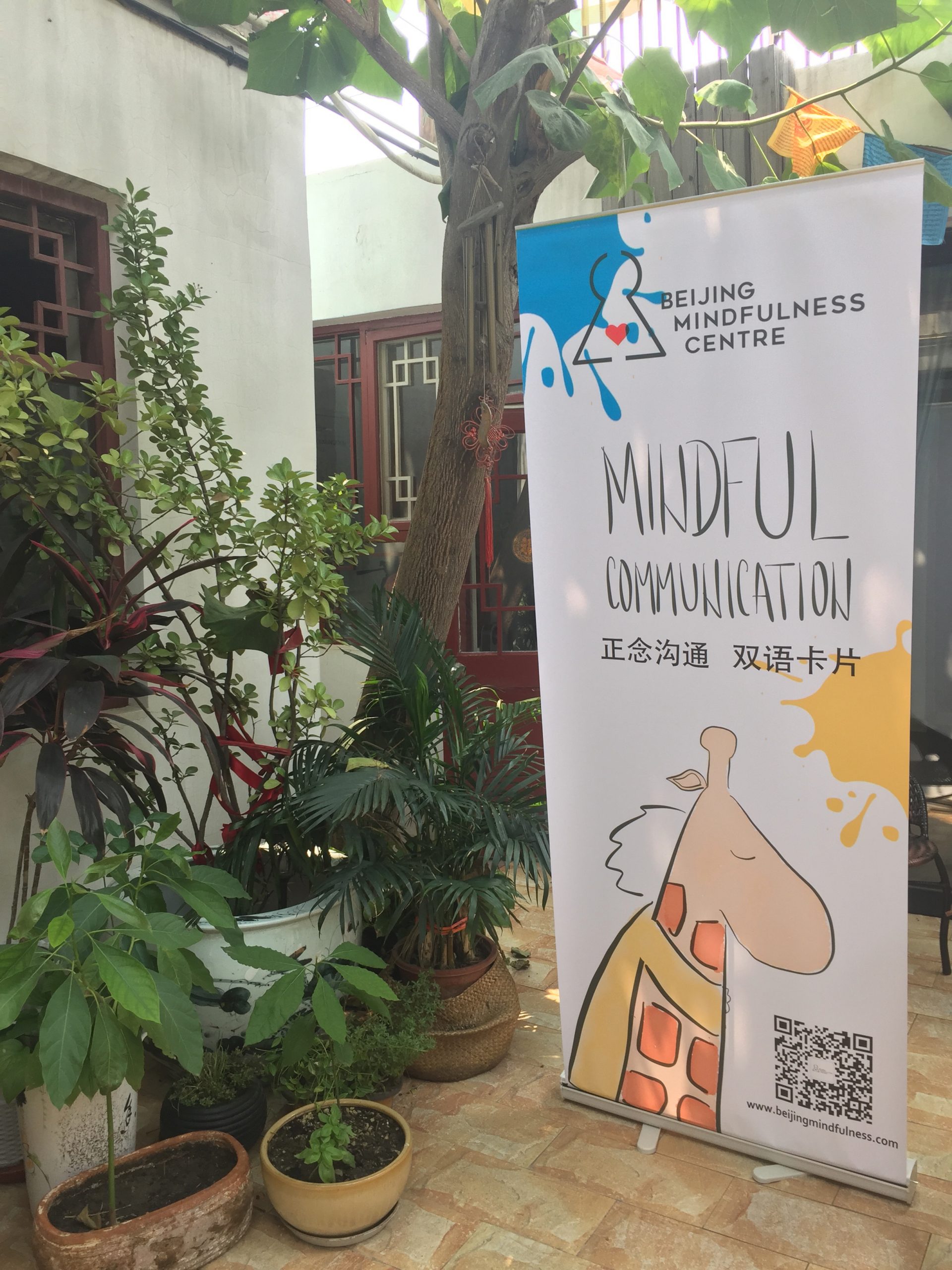 In characteristic hutong fashion, I walked down a hallway adorned with posters, which opened into a serene courtyard shaded by towering trees. Someone else was there too, a taller lady in a striped dress of autumn colors. Her eyes lit up as she greeted me with a smile, “I think we can go in soon.” I noticed she had no shoes on, and followed her example.
In characteristic hutong fashion, I walked down a hallway adorned with posters, which opened into a serene courtyard shaded by towering trees. Someone else was there too, a taller lady in a striped dress of autumn colors. Her eyes lit up as she greeted me with a smile, “I think we can go in soon.” I noticed she had no shoes on, and followed her example.
A few minutes passed in silence, while I admired the surroundings. Then the lady peered through the transparent door and signaled to me to enter. She led me into the room and we joined the Mindfulness Morning Circle, an event that takes place every Wednesday at 10am. Everyone still had their eyes closed so I did the same. Dalida Turkovic, the founder of Beijing Mindfulness Center (BMC), was leading the session. “Notice how your body feels today, how you feel today, there are no bad feelings, everything will pass…” Those may not have been the exact words she uttered that day, but the sentiment was there. I allowed myself to relax.
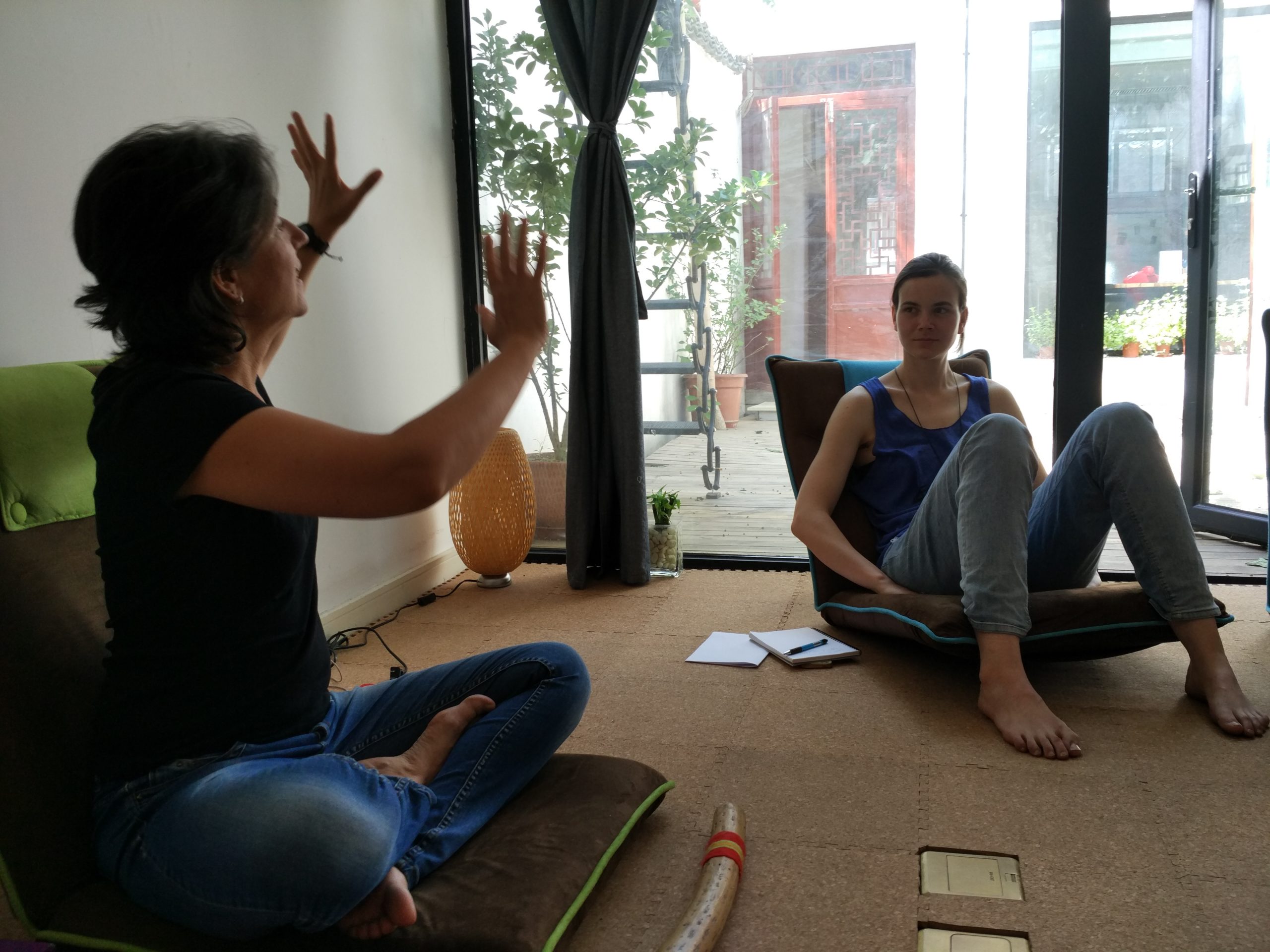 We meditated, eyes closed, for a while longer. At Turkovic’s instruction, we opened our eyes and went round-robin with self-introductions. Not the typical introduction I have come to expect of expat culture – blandly stating your country of origin and where you just moved from – but an introduction of our present emotional state and our intention for the session. All that the auburn-haired lady before me said was, “I am here.” I waited for more before I realized she was finished and then gave my much longer introduction, stating that I was there to observe and write about the experience.
We meditated, eyes closed, for a while longer. At Turkovic’s instruction, we opened our eyes and went round-robin with self-introductions. Not the typical introduction I have come to expect of expat culture – blandly stating your country of origin and where you just moved from – but an introduction of our present emotional state and our intention for the session. All that the auburn-haired lady before me said was, “I am here.” I waited for more before I realized she was finished and then gave my much longer introduction, stating that I was there to observe and write about the experience.
The rest of the session saw the participants sharing as much as they were willing. One lady, in particular, seemed to be in a rather emotional state. She was a new mom to two young children and had suffered some childhood instability herself, which she believed was preventing her from being the parent she wanted to be. We gave her the space to unload her cares, and she seemed lighter for it.
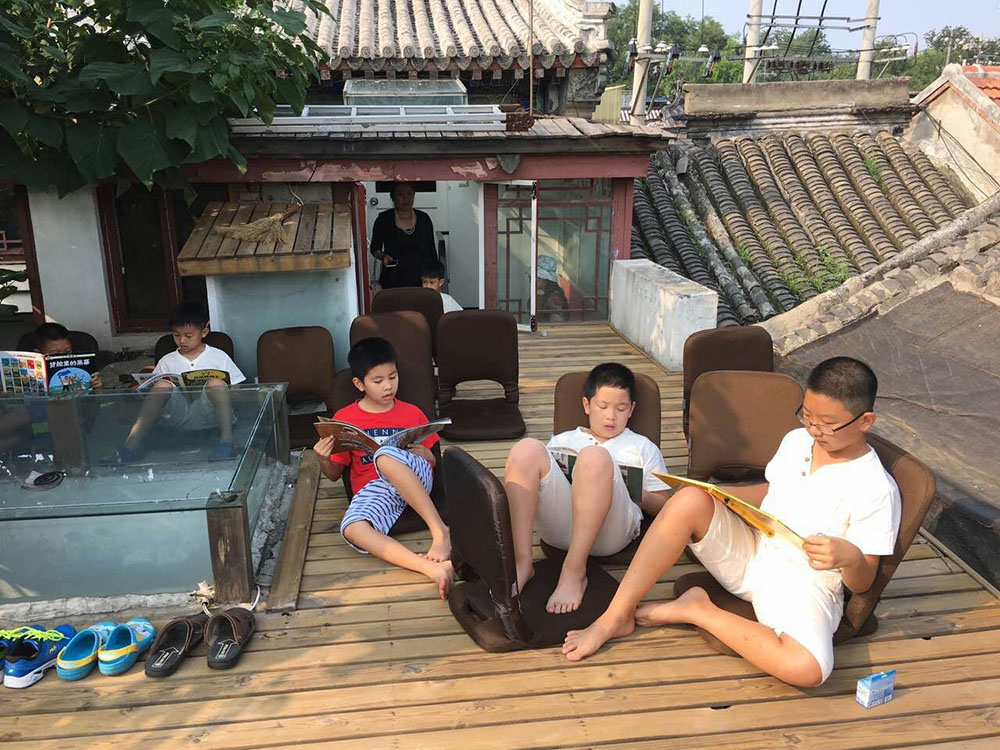 After the session, armed with my overdeveloped curiosity, I started a conversation with some of the participants who were still lingering in the courtyard and discovered that they were actually all coaches at BMC, trained under Turkovic through the International Coaching Federation (ICF) certification program. “So coaches also attend other coaches’ sessions…” I realized. Much like how therapists also see a therapist themselves. Though the similarity ends there, as Charlene Ong, one of the coaches present that day, explained to me, “therapy mostly deals with the past, and coaching is about the present with an eye on the future.”
After the session, armed with my overdeveloped curiosity, I started a conversation with some of the participants who were still lingering in the courtyard and discovered that they were actually all coaches at BMC, trained under Turkovic through the International Coaching Federation (ICF) certification program. “So coaches also attend other coaches’ sessions…” I realized. Much like how therapists also see a therapist themselves. Though the similarity ends there, as Charlene Ong, one of the coaches present that day, explained to me, “therapy mostly deals with the past, and coaching is about the present with an eye on the future.”
Technically speaking as well, therapy requires a minimum of a master’s degree in psychology or counseling and is a licensed profession, whereas coaching is termed “an unregulated profession” because a coach may or may not have any certification. One reason for this is because coaching is a relatively new industry, exploding since the Covid pandemic put most of the world’s population into quarantine and usually high-functioning members of society found themselves staring at the mirror in varying degrees of crises.
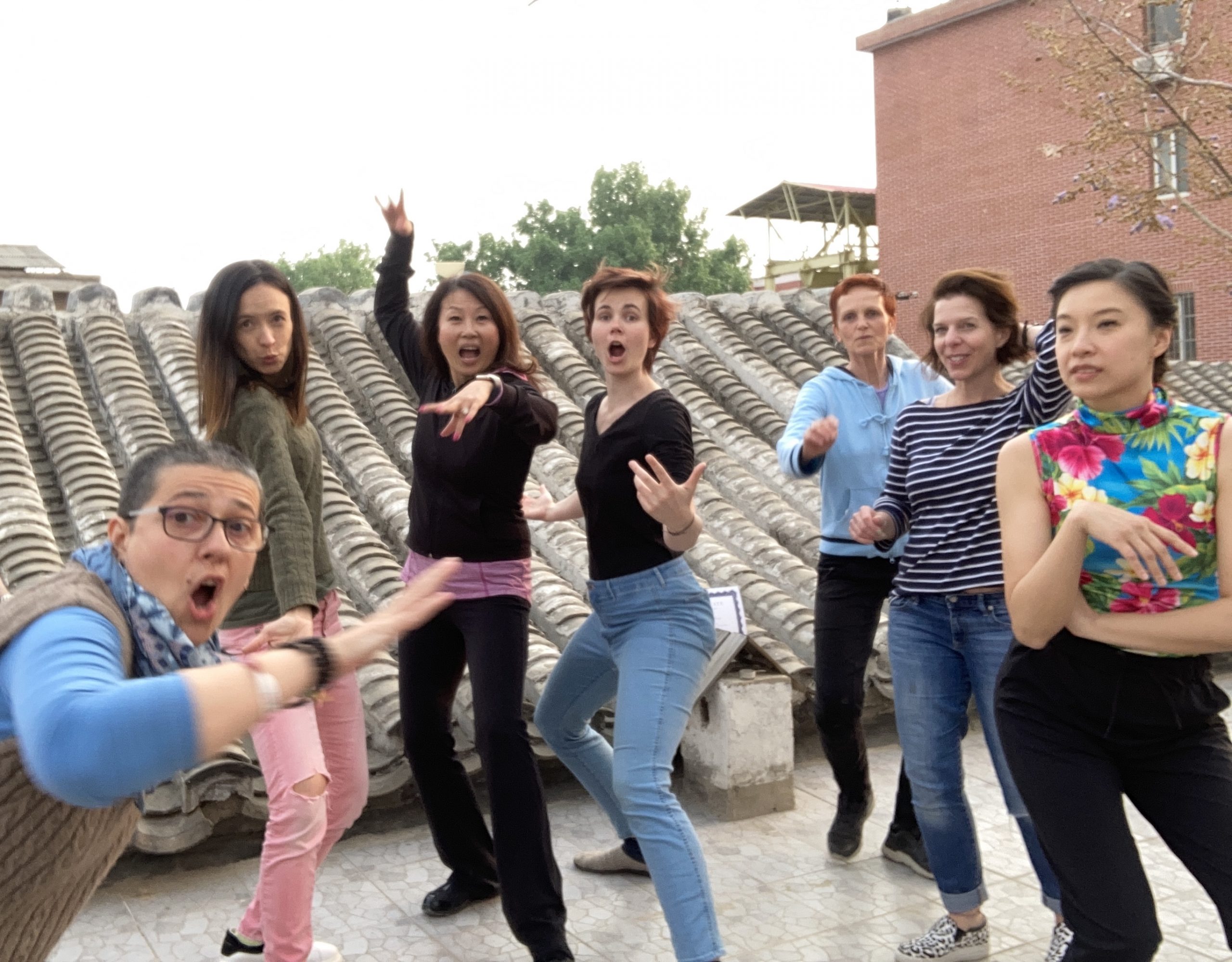 So what exactly does a coach do? According to their website, “the ICF defines coaching as partnering with clients in a thought-provoking and creative process that inspires them to maximize their personal and professional potential.” Put another way, coaches are a professional friend who’s there just for you (within that billed hour of course).
So what exactly does a coach do? According to their website, “the ICF defines coaching as partnering with clients in a thought-provoking and creative process that inspires them to maximize their personal and professional potential.” Put another way, coaches are a professional friend who’s there just for you (within that billed hour of course).
At BMC, the coaches are all ICF-certified, basically the gold standard for the coaching industry nowadays. They are also encouraged to continually renew their certifications and to take on more specialized credentials for specific groups (e.g professional coaching, teen coaching) or practices. This fits in well with Turkovic’s belief that a key characteristic of a coach is that they possess a learning spirit. “Otherwise, your clients will outgrow you,” quips Julia Feste, who focuses on Non-Violent Communication in her coaching practice.
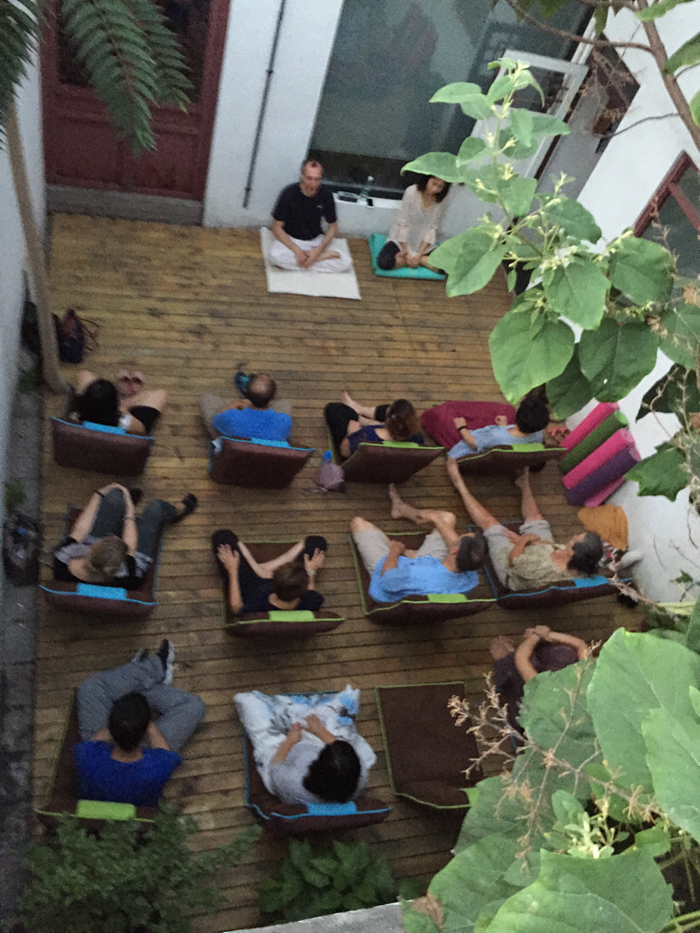 BMC coaches tell me that they usually meet their clients face-to-face at the center, over the phone, or on video calls. They work in a variety of languages – from English to Mandarin and Cantonese to French – to best suit their clients, a surprising number of whom are Mainland locals.
BMC coaches tell me that they usually meet their clients face-to-face at the center, over the phone, or on video calls. They work in a variety of languages – from English to Mandarin and Cantonese to French – to best suit their clients, a surprising number of whom are Mainland locals.
But do you have what it takes to be a coach? According to Turkovic, “If you have overcome a life challenge and came out of it stronger, if you are curious about people and want to help them be the best version of themselves, if you believe that taking responsibility is much more productive than blaming (self or others), if you are passionate about learning then you already have what it takes to have interest in attending a coach training. Ultimately, all coaching skills can be learned and it is important to know that, like any other profession, in order to be a good coach you need to attend a coach training program that will enable you to coach according to coaching ethics and competencies.”
BMC will run a series of coaching introductory workshops throughout November, where you can get all your questions answered. More details are available on their website at www.beijingmindfulness.com.
Beijing Mindfulness Centre / Small Steps Office
Qian YongKang Hutong 44
前永康胡同44号
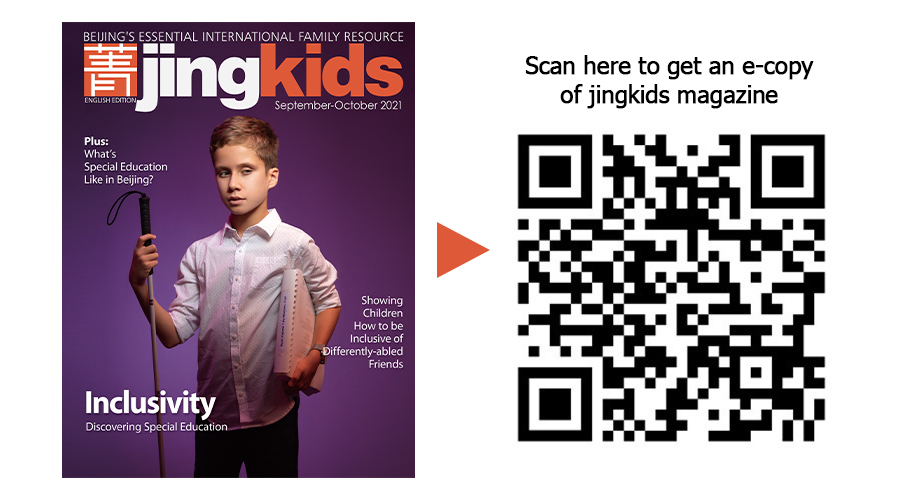
This article appeared in the jingkids 2021 September-October issue

